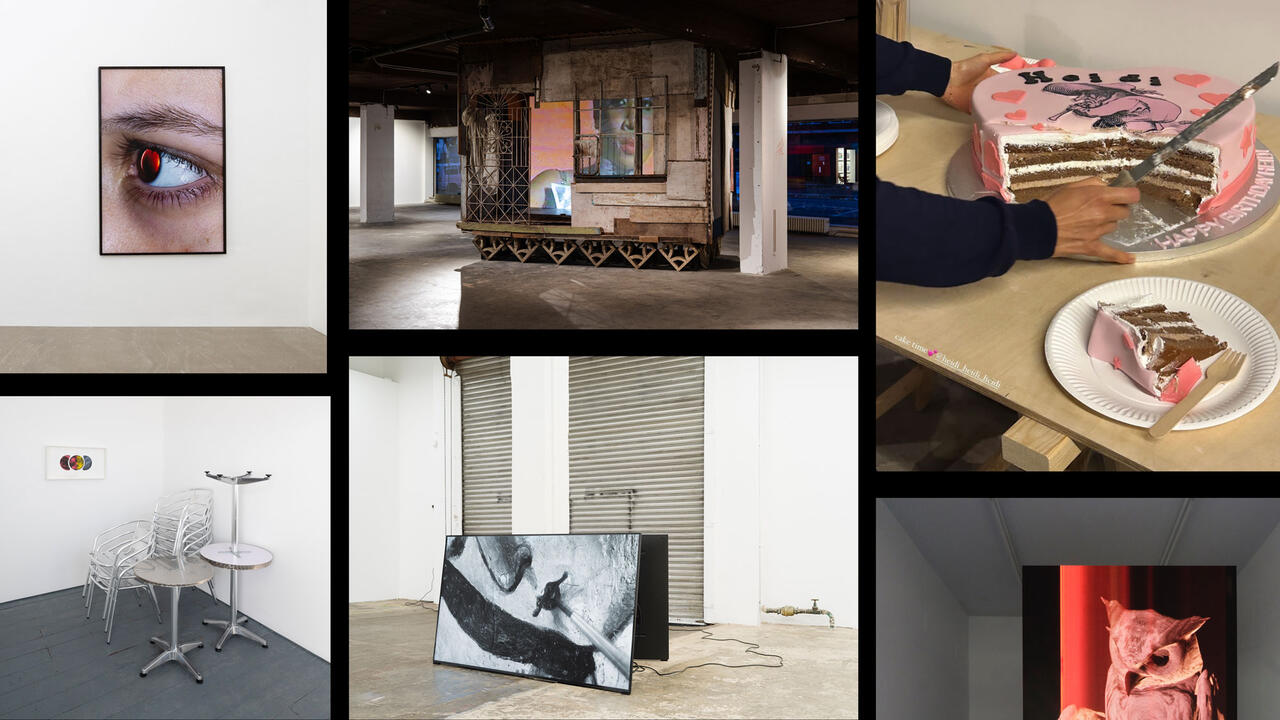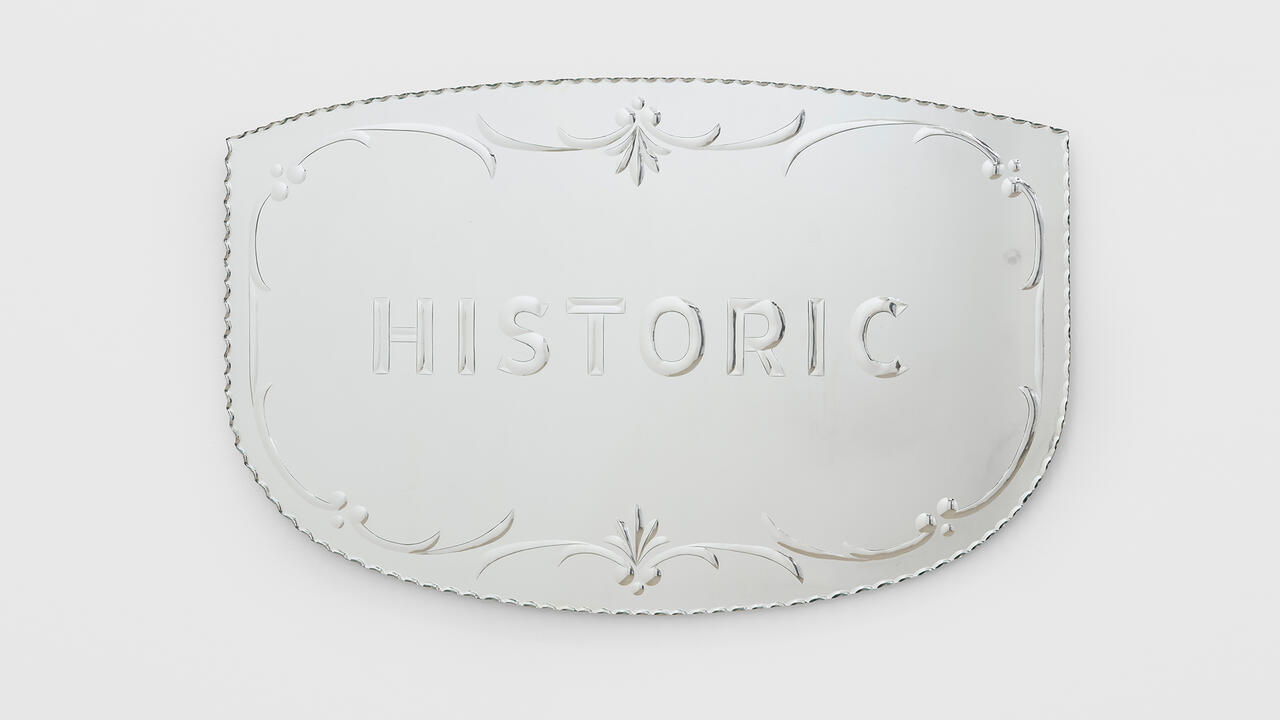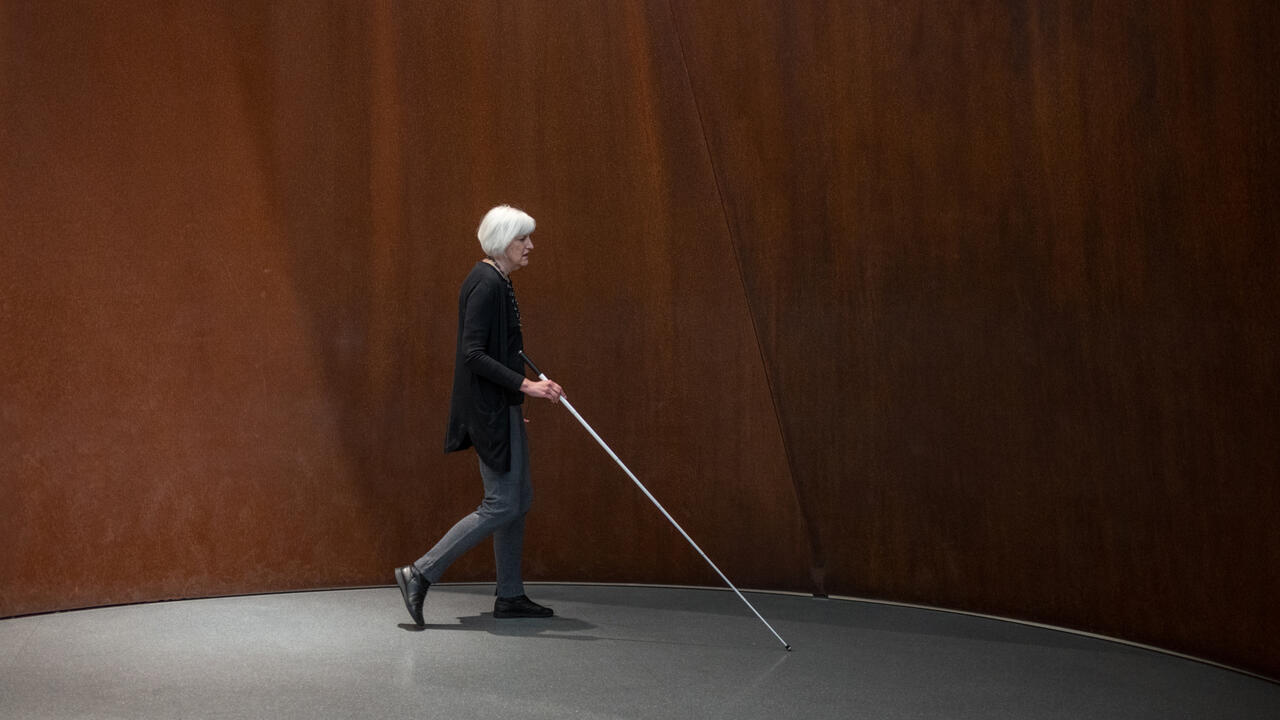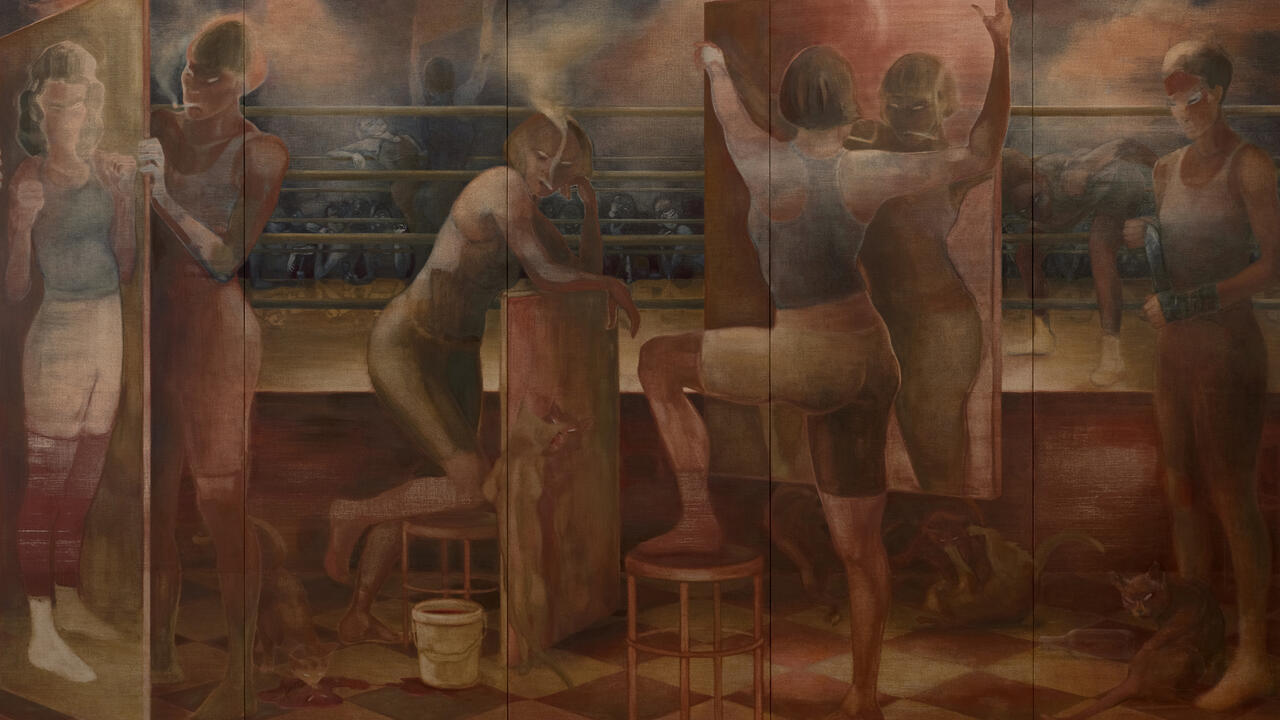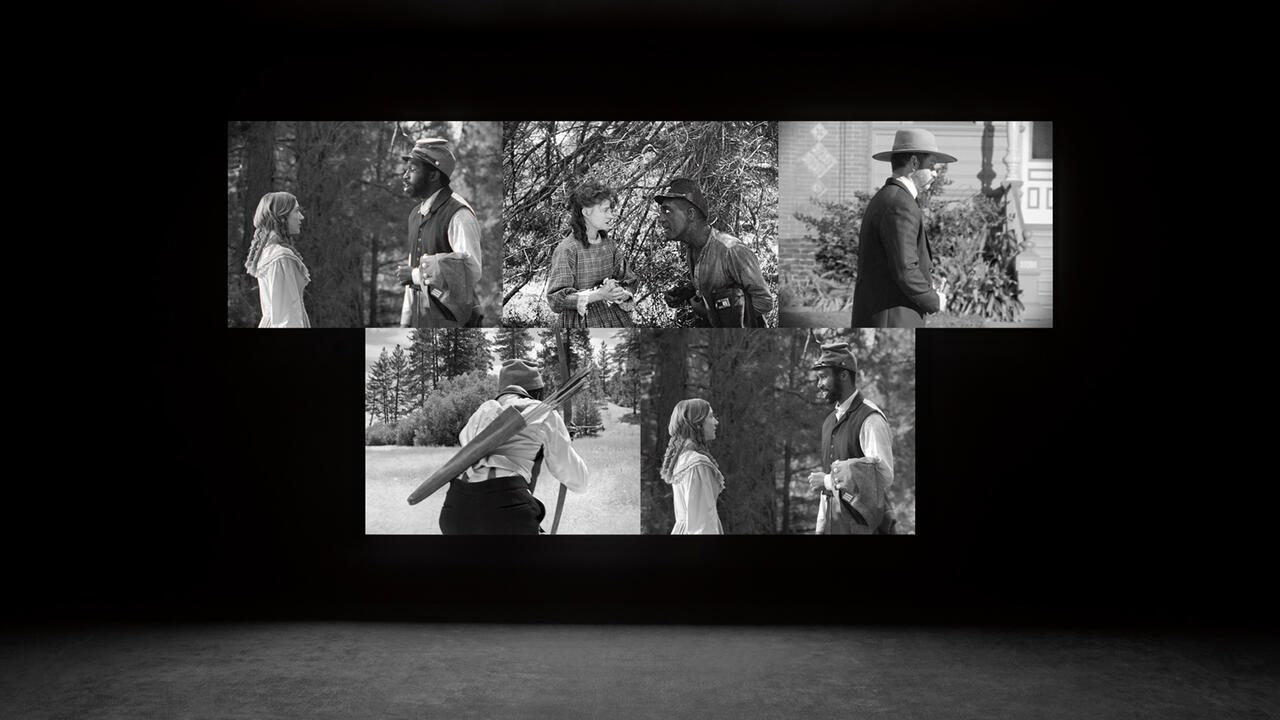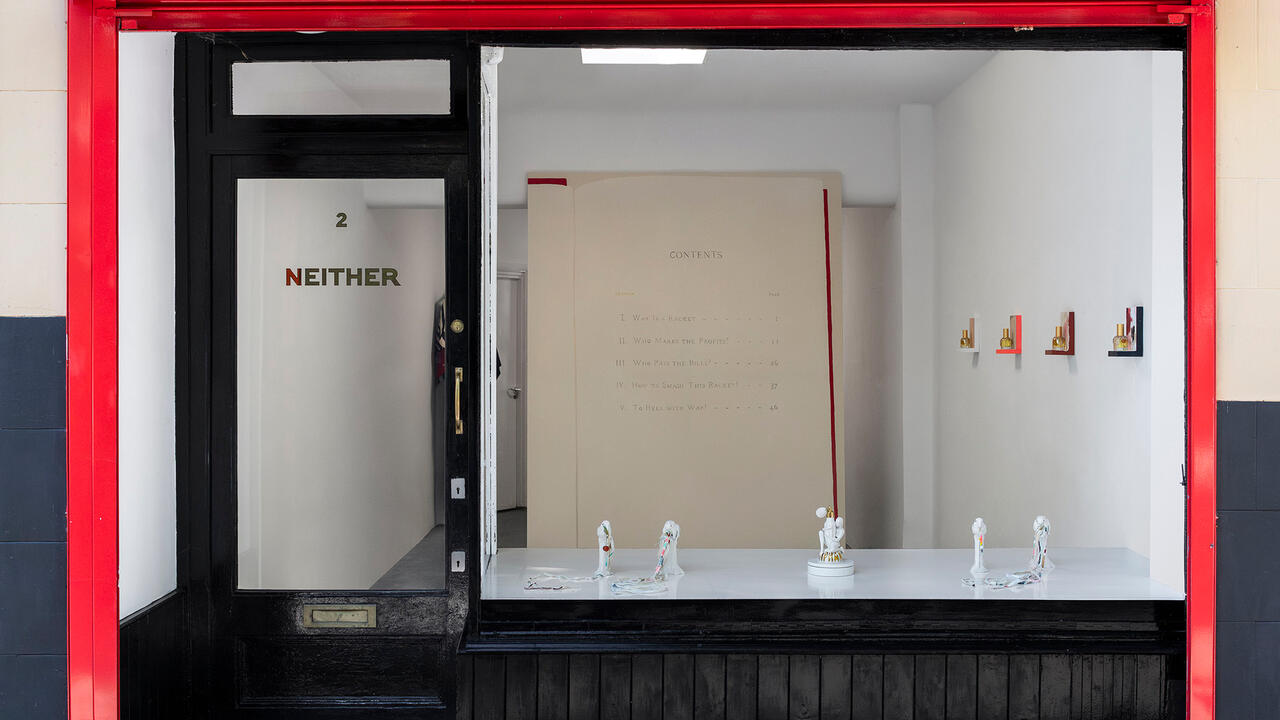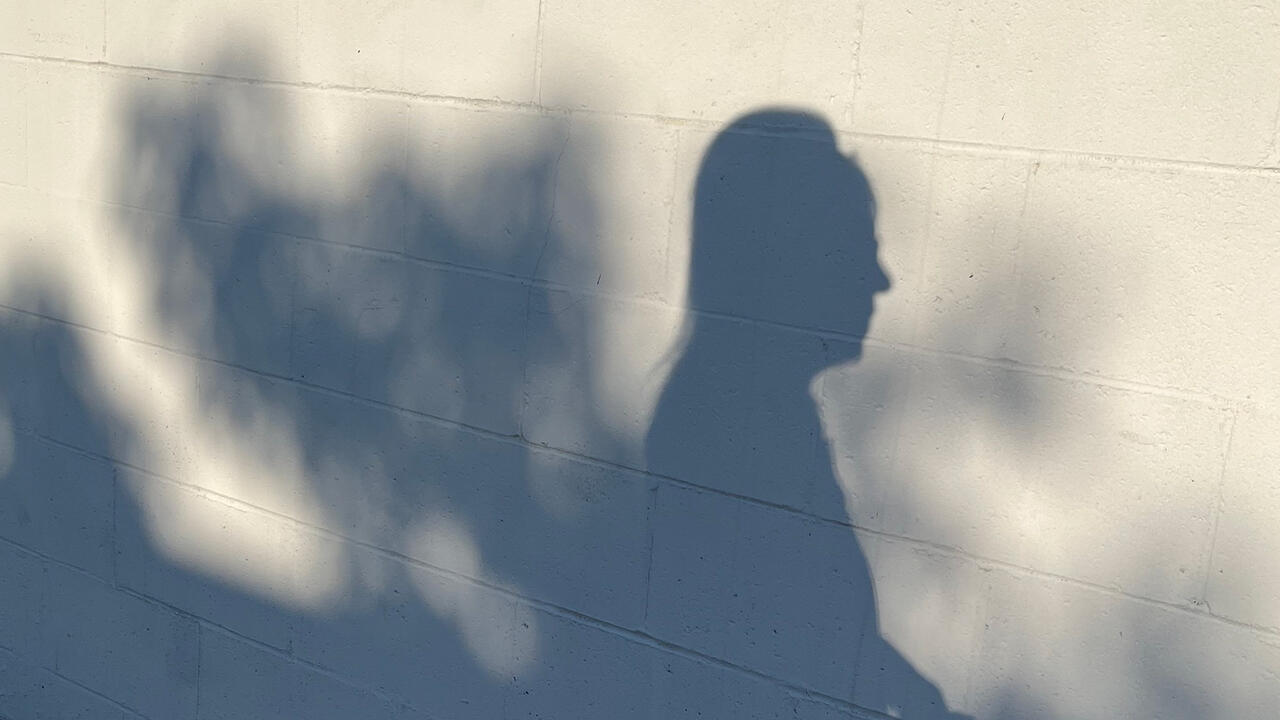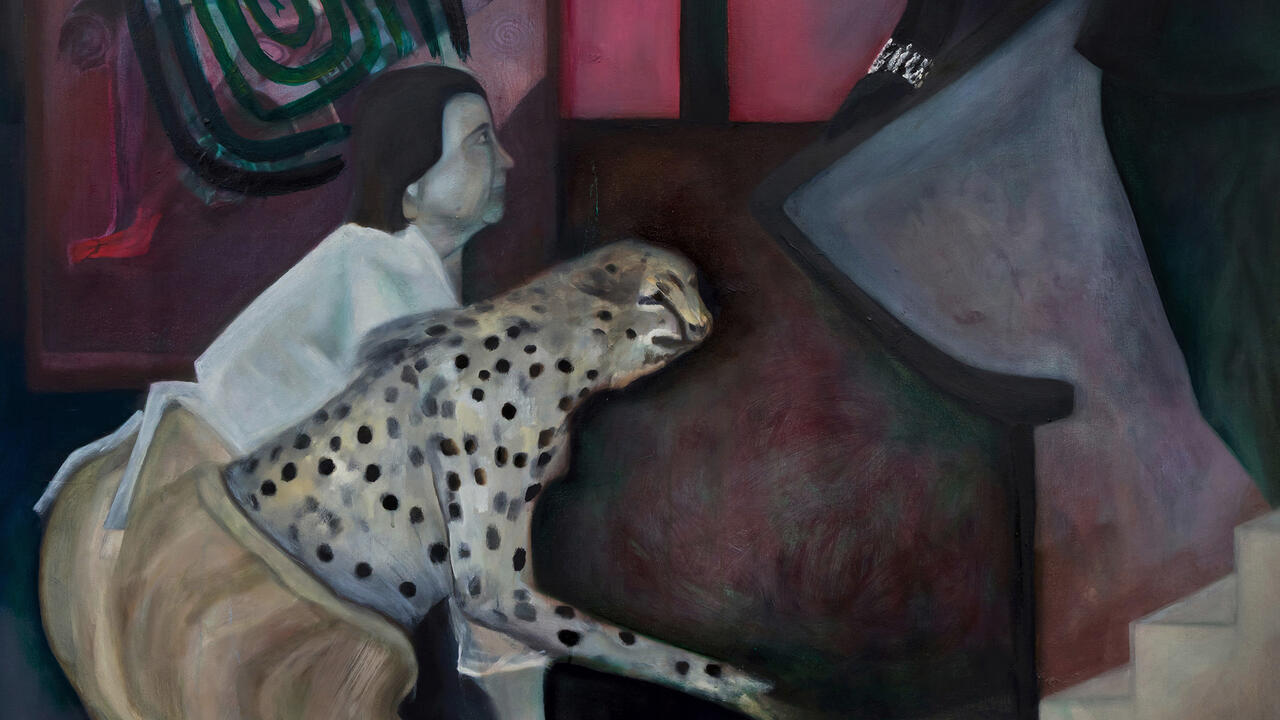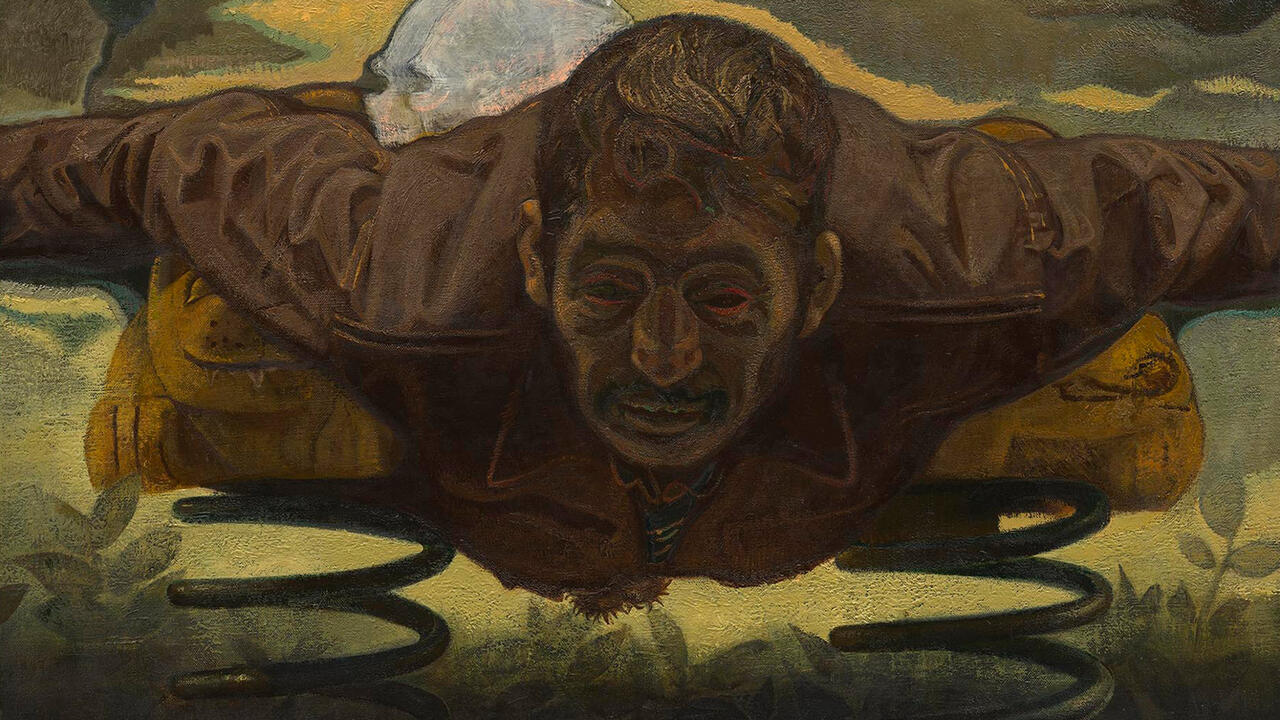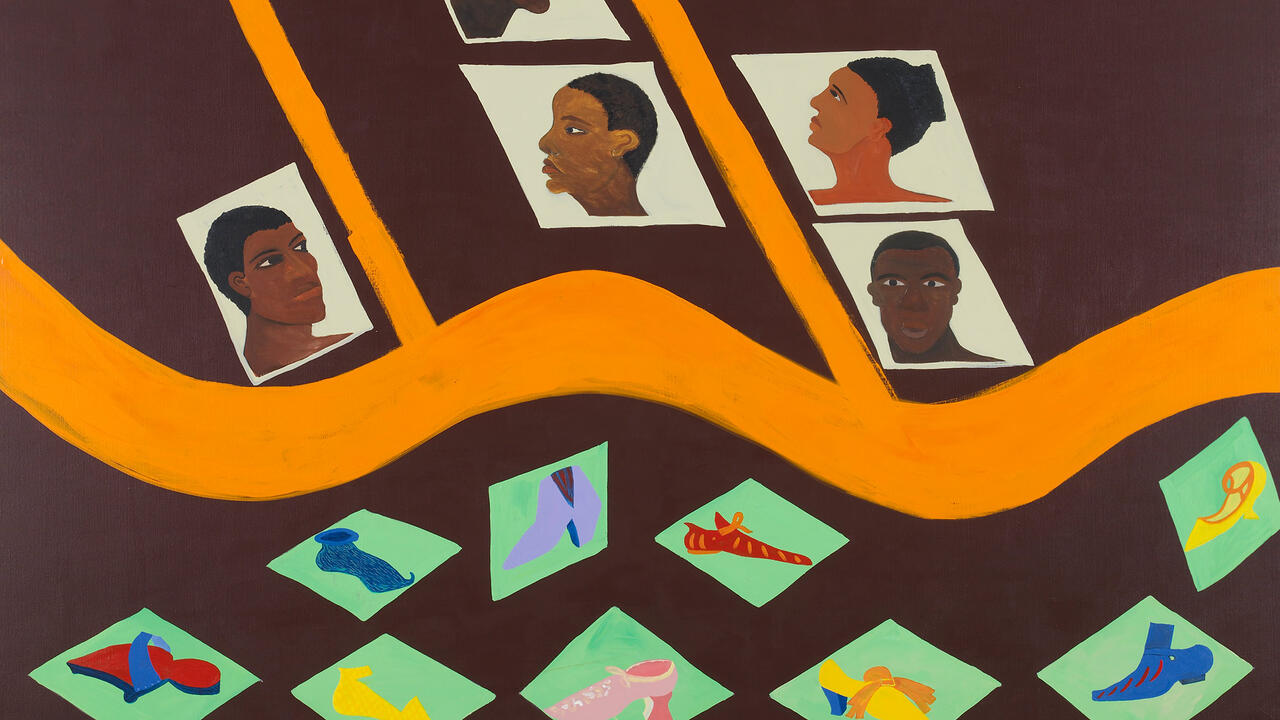Rachel Rose
Pilar Corrias, London, UK
Pilar Corrias, London, UK

The champagne-coloured carpet in Rachel Rose’s video installation Lake Valley (2016) is so plush that the cables connecting two cuboid speakers, which have been casually dropped like the bits of string for Marcel Duchamp’s 3 Standard Stoppages (1913–14), have burrowed deep into its pile. Lake Valley, like much of Rose’s moving-image work, combines imagery found in books or online and digitally rendered footage, using dynamic transition effects to tell the story of a ‘day-in-the-life’ of a household pet – an animal that stretches like a cat, heels like a dog and mopes like a depressed teenager. For Lake Valley, Rose collaborated with an animation company to develop the cel drawings of the video’s characters: a young girl, her father and the indeterminate pet.

The video – the only work in Rose’s first show at Pilar Corrias – runs for roughly eight minutes and is a feast for the eyes, layering cut-out imagery from illustrated children’s stories in a profusion of media and textures: there are clippings of half-tone printing, paintings, pencil sketches and digital pen drawings. The day begins with a young girl asleep in her room, first shown suspended in mid-air, then with her head on a pillow partly submerged in water. An egg is cracked open for breakfast and out slips a flood of yellow and white globular cutouts. Throughout Lake Valley, there’s a sense of characters existing between states, not quite present in their own lives. This otherworldliness carries on in the moody minor-key soundtrack, made up of samples from existing animations, which starts with the slow breathing of the sleeping household and builds to a staccato of anxious exhalations. The general sense of foreboding is mitigated by foley-effect footsteps, moving furniture and food preparation: sounds whose accent on mundane actions is vaguely reassuring. Later, as day changes into evening, the animal tries and fails again to get its owners’ attention, disappearing into the undergrowth where it meets a porcupine with hollow eyes and quills made of fireworks. The animal falls asleep only to be woken by the hiss of lit fuses and pyrotechnics – a scene that brings to mind the appalling cruelty with which children can sometimes treat animals.
Lake Valley has some mesmerizing moments, as when the frame tilts to reveal an idyllic sylvan scene resembling a pop-up book or when the point of view switches to inside the animal’s bowl and a deluge of pet food tumbles down like a shower of conical megaliths falling from the sky. A naive story, it recalls children’s classics such as Tove Jansson’s Moomin (1945–70) books or Richard Adams’s novel Watership Down (1972), which were also made into animations. But unlike those emotional and uplifting stories, in Lake Valley everything – from the paper cutouts to the cel drawings to the mood, message and soundtrack – is flat. If Lake Valley is a parable, it’s one about the lack of empathy and sense of depression that can permeate family life.

Redemption might be found in the beauty of Rose’s suburban pastoral: the fireflies twinkling in the dusk, a ginger fox and the exquisite animals that pop up at night. But the cel animations and lavish collages are like comfort food for the eyes: they’re delicious at first but when put to the service of a storyline that revolves around casual neglect, they left me feeling unsatisfied and a bit low. Lake Valley is a disquieting mood piece, in which the characters seem sadly cut off from one another. Fittingly, it is on show in London at the time of year when the nights begin to draw in, portending darker seasons and triggering the instinct for hibernation.









